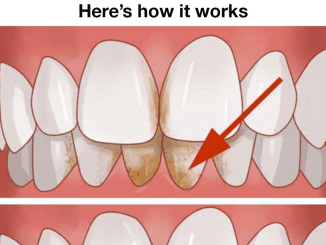Charging your phone overnight is a common practice, but experts are raising concerns about the potential long-term damage this habit may cause to your phone’s battery. While leaving your phone plugged in overnight may seem convenient, it may not be the best approach for maintaining optimal battery health. Let’s explore why experts advise against this routine and what you can do to protect your phone’s battery life.
Why You Should Avoid Charging Phones Overnight
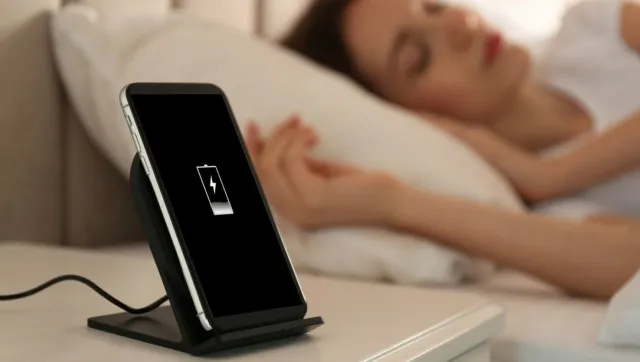
Expert warns users should never charge their phones overnight. Image Credit: Getty
Many people plug in their phones at bedtime, assuming that the device will automatically stop charging once it hits 100%. While smartphones have advanced charging technology to prevent excessive charging, consistently leaving your phone plugged in for long periods can have adverse effects on the battery. Let’s dive into the key concerns.
The Impact on Battery Health
One of the main reasons to avoid charging your phone overnight is that it can lead to overcharging. Smartphone batteries, particularly lithium-ion batteries, are designed with a limited lifespan, usually measured in charge cycles. Each time a battery is charged from 0% to 100%, it completes one charge cycle, and over time, the number of charge cycles will degrade the battery’s ability to hold a charge.
While modern phones stop charging when they reach 100%, they often continue to “trickle charge” to maintain full battery capacity, which causes small but constant discharging and recharging. This repeated cycle wears down the battery over time, shortening its lifespan. By reducing the number of full charge cycles, you can help prolong the battery’s overall health.
Heat Generation and Its Effects
Another major issue that arises with overnight charging is heat generation. When a phone charges, it naturally produces some heat, and if it remains plugged in for hours, the temperature can rise. Lithium-ion batteries are particularly sensitive to heat, which can accelerate wear and tear.
Charging your phone overnight on a soft surface like a bed, couch, or pillow can further trap heat, increasing the risk of overheating. This could potentially damage internal components and reduce the phone’s performance. To avoid this, it’s always better to charge your phone on a hard, flat surface where it can properly dissipate heat.
How to Extend Your Phone’s Battery Lifespan
If you want to ensure that your smartphone battery stays healthy for as long as possible, here are a few expert-recommended tips to follow:
Practice Smart Charging Habits
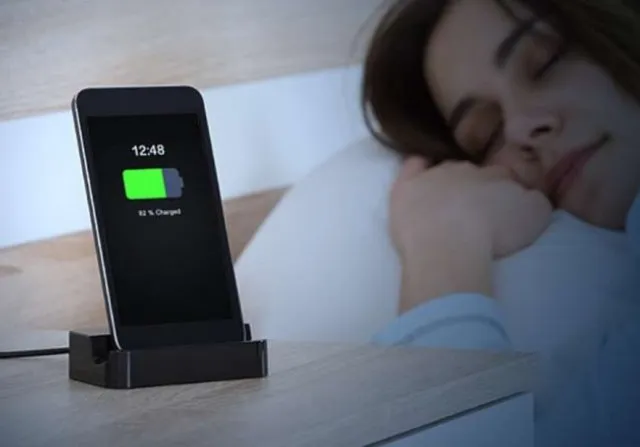
Image Credit: Getty
Rather than leaving your phone to charge overnight, try charging it during the day when you can monitor the progress. Unplugging your phone once it reaches 100% is ideal for preventing overcharging. By taking it off the charger at the right time, you can avoid unnecessary strain on the battery.
Additionally, if you use your phone’s battery heavily throughout the day, consider charging it in shorter, more frequent bursts instead of allowing it to run down completely and then charging it all the way up.
Use Power-Saving Modes
Most smartphones come equipped with power-saving modes that are designed to reduce energy consumption. These modes work by limiting background processes, reducing screen brightness, and disabling non-essential features to preserve battery life.
Activating these power-saving features can reduce the amount of energy your phone uses throughout the day, meaning you won’t need to charge it as often. This can be especially useful for times when you know you won’t have access to a charger, such as when traveling or during long workdays.
Stay Mindful of Battery Levels
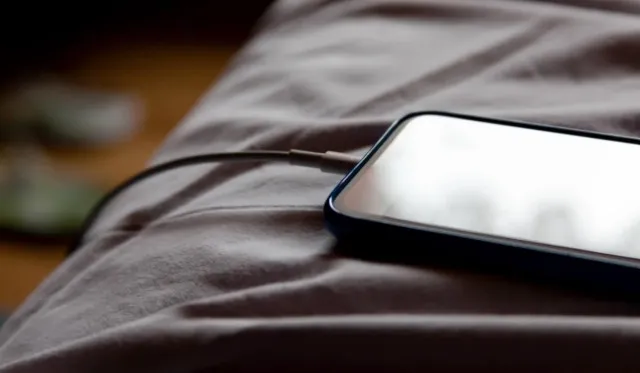
Image Credit: Getty
It’s essential to keep an eye on your battery’s level and avoid draining it completely before plugging it in. Most experts recommend charging your phone when it reaches around 20% and unplugging it at 80% for optimal battery health. This range prevents deep discharges and overcharging, both of which can degrade the battery faster.
Instead of waiting for the battery to hit rock bottom, plug it in at more manageable intervals. Keeping your battery in this middle range of charge can slow the wear and tear on your battery.
Charge in Cooler Environments
Since heat is a major factor in battery degradation, charging your phone in a cooler environment can help extend its lifespan. Avoid charging your phone in direct sunlight, near heaters, or in hot spaces like a car on a warm day. These conditions can cause the battery to overheat more quickly, leading to damage over time.
If your phone feels hot to the touch while charging, it’s a good idea to unplug it for a while to let it cool down before continuing.
The Risks of Overnight Charging
Charging your phone overnight may seem like a harmless habit, but the risks can add up over time. Overcharging, excess heat generation, and reduced battery efficiency are all potential consequences of consistently leaving your phone plugged in for too long.
While modern smartphones have built-in safety mechanisms to prevent the most severe cases of overcharging, the constant trickle charging that occurs when left plugged in can slowly degrade your battery’s capacity. Furthermore, charging your phone overnight in places that trap heat, such as under a pillow or blanket, can increase the risk of internal damage due to overheating.
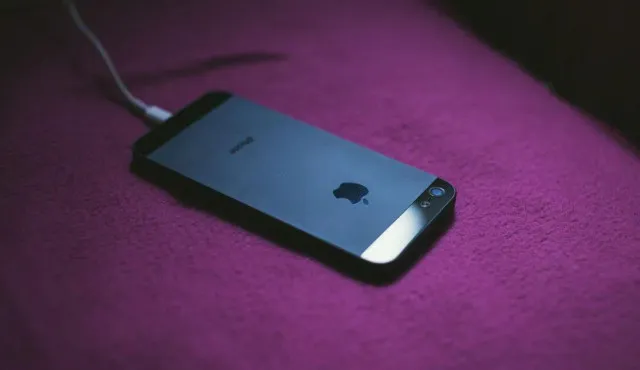
To improve your phone battery’s lifespan, experts suggest better charging habits. Image Credit: Getty
What About Wireless Charging?
Wireless charging is another popular method for powering up phones, but the same rules apply. While wireless chargers are convenient, they also generate heat during the process, and if left charging overnight, they can still contribute to battery wear.
To mitigate this risk, use wireless chargers that feature automatic shutoff once the phone is fully charged, or try to charge your phone in short intervals rather than overnight.
Conclusion: Charging Smarter for a Longer-Lasting Battery
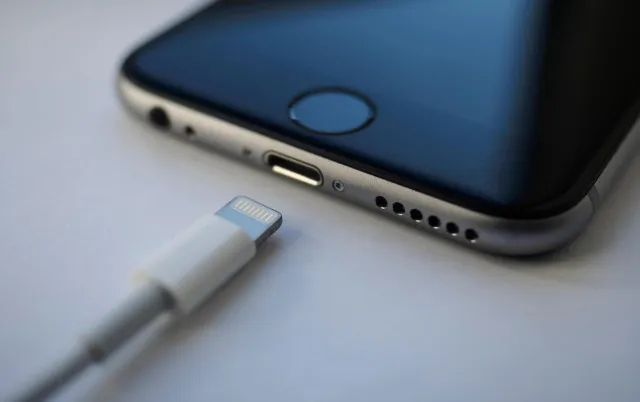
Charging phones overnight leads to heat generation. Image Credit: Getty
While it may be convenient to charge your phone overnight, the risks associated with overcharging, heat buildup, and reduced battery life make it worth reconsidering. Instead, adopting better charging habits—such as charging during the day, keeping your battery between 20% and 80%, and using power-saving modes—can help extend the lifespan of your phone’s battery.
By following these expert tips, you can ensure your phone’s battery stays healthy for longer, avoiding the common pitfalls that come with overnight charging. Remember, charging smartly is the key to keeping your device running smoothly for years to come.
